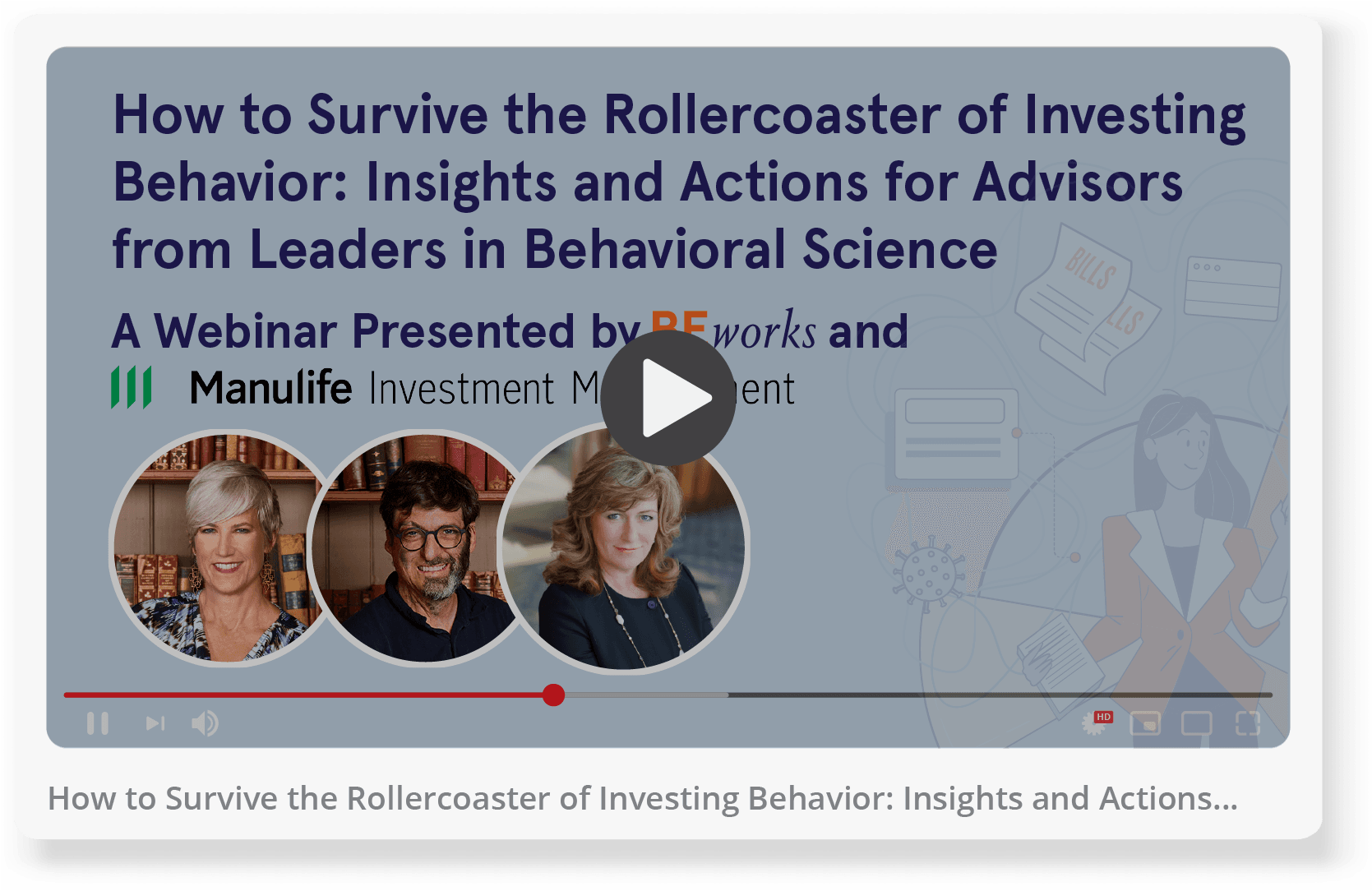

It’s no secret that the world has changed. The pandemic has ravaged societies and economies, and financial companies are increasingly worried about the possibility of investors panicking and making poor decisions during the market-volatility that seems to be the new norm. Aware of the importance of understanding human psychology in these uncertain times, leading financial research firm Morningstar put behavioural economics center stage at its most recent investment conference.

Leading the virtual roundtable discussion, Samantha Lamas - behavioural researcher for Morningstar - argued just how crucial it was to understand the psychological underpinnings of investors’ decisions to sell or buy – especially now that we are in the midst of great uncertainty. This is because research shows that overworked and stressed-out individuals are less likely to approach their decisions rationally, “When we’re dealing with limited information, high uncertainty, and too many choices, using a shortcut is what we should be doing.” said Lamas. “Usually it leads us to the right conclusion. However, this doesn’t always happen in investing.”
One shortcut that investors often fall prey to is the herding bias. When all your peers are reacting the same way, you can’t help but feel the urge to follow. “That can lead to bubbles”, argues Morningstar’s head of behavioural science, Stephen Wendel. “It can lead to fads. It can lead to tremendously bad outcomes.” Knowing this, is there anything we can do to prevent investor panic and preserve stability amid turmoil?
Recently, BEworks partnered with Manulife Investment Management to take a rigorously scientific approach towards helping financial advisors and their clients. The goal is to understand why investors sometimes make poor decisions and then find ways to nudge them towards seeking and following professional financial advice. The research that BEworks conducted as part of this project unearthed a wealth of behavioural insights regarding how to convince investors to seek and follow professional advice that will result in better outcomes.

BEworks co-founder and CEO, Kelly Peters, summarised the research team’s insights at a recent webinar hosted by Manulife Investment Management. Contrary to what we might expect, argues Peters, highlighting the complexity of a financial situation and ‘flexing’ your expertise as an advisor does not get people to trust your advice. In fact, it backfires. “How they trust you... value your advice. Their intention to consult with an advisor again... all those measures actually go down when you try to exert authority,” Peters said. Advisors should, instead, focus on emphasising the collaborative nature of their client interaction. Similarly, explaining more is not the answer. Instead, focusing on communicating in a simple manner boosts investors’ trust in an advisor’s expertise.
Continuing the discussion, Chief Behavioral Scientist and co-founder of BEworks Dan Ariely explained: “Complexity frightens people”. As an advisor, trying to add layers of complexity to an issue - in part to highlight your own authority on the matter - can frighten investors and make them less willing to make a decision let alone follow-through on it.
These discoveries may come as a surprise to some in the financial sector. But the unexpected nature of the insights unravelled by BEworks’ research illustrates the importance of not relying on our intuitions, and instead taking a scientific and hypothesis-driven approach to understanding how people’s minds work – and how we persuade them.
The diversity of behavioral insights unravelled by BEworks’ research is covered in greater detail in a recent Insurance Portal article. As a company working at the intersection of behavioral science research, application, and consulting, we encourage financial companies worldwide to embrace the evidence and follow the science. It is the best chance we could hope for to find a path through the marshes of uncertainty that surround us.